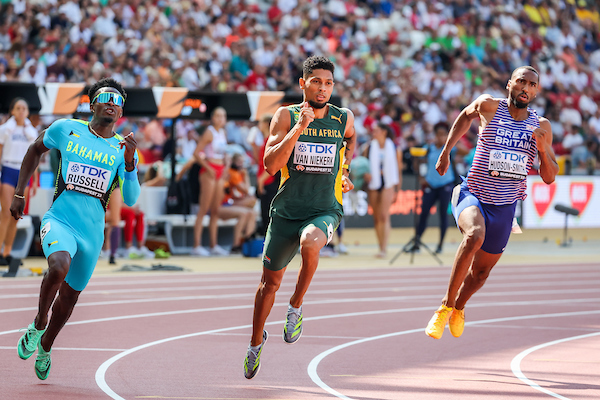Sports are often seen as a form of entertainment or competition, but their impact extends far beyond the playing field. Throughout history, sports have played a significant role in shaping societies and cultures, influencing everything from social norms to political movements. Whether it’s through bringing communities together, breaking down societal barriers, or promoting a sense of identity, sports have a profound effect on the way people live, think, and interact.
In this article, we will explore how sports influence society and culture, examining their role in promoting unity, social change, and personal development, as well as the global impact of sports in modern life.
1. Sports as a Unifying Force
One of the most powerful aspects of sports is their ability to unite people from diverse backgrounds. Whether on a local or global scale, sports have a way of bridging divides between individuals, communities, and even nations. Major events like the FIFA World Cup, the Olympics, and the Super Bowl bring people together, fostering a sense of solidarity that transcends race, nationality, religion, and political views.
The shared experience of rooting for a team or athlete creates a unique bond among fans, and in some cases, entire countries rally around their national teams. For example, the 1995 Rugby World Cup in South Africa, which took place just a few years after the end of apartheid, became a symbol of national unity, with the sport serving as a tool for healing and reconciliation. Similarly, the 2014 World Cup in Brazil was seen as a unifying event, as it brought together people from all over the world to celebrate the love of soccer.
Sports also promote community spirit at the grassroots level. Local sports teams and clubs often foster a sense of belonging, with people from various walks of life coming together to support their teams. This can create a feeling of shared purpose and pride, strengthening social bonds and helping to reduce social isolation.
2. Sports as a Tool for Social Change
Sports have long been a platform for social change, with athletes and organizations using their influence to challenge societal norms, fight for equality, and promote justice. From breaking racial barriers to advocating for gender equality, sports have been instrumental in pushing boundaries and raising awareness of social issues.
One of the most significant examples of this is the civil rights movement in the United States, where athletes like Jackie Robinson, Muhammad Ali, and Billie Jean King used their platforms to challenge racial discrimination and promote equality. Jackie Robinson’s breaking of the color barrier in Major League Baseball in 1947 was not just a historic moment in sports—it was a pivotal moment in the fight for civil rights in America.
In more recent times, athletes have continued to use sports as a platform for activism. The Black Lives Matter movement gained international attention in 2020 when NFL player Colin Kaepernick took a knee during the national anthem to protest police brutality and racial injustice. His peaceful protest sparked a worldwide conversation about race and inequality, highlighting how sports can serve as a powerful vehicle for social change.
Moreover, sports have also been instrumental in advancing gender equality. Women’s participation in sports has grown exponentially over the past century, and athletes like Serena Williams, Simone Biles, and Megan Rapinoe have used their visibility to challenge traditional gender roles and fight for equal pay, representation, and opportunities for women in sports.
3. The Impact of Sports on National Identity and Patriotism
Sports play a crucial role in shaping national identity and fostering patriotism. Major international sporting events, such as the Olympics and the World Cup, provide a platform for countries to showcase their culture, history, and values on the world stage. Athletes representing their countries become symbols of national pride, and their success or failure can evoke strong emotions among citizens.
The Olympics, for example, bring together nations from around the globe in a celebration of human achievement. These events are not just about competition—they are about honoring the shared identity of nations and the spirit of cooperation. The sight of athletes from different countries standing together on the podium, united by the pride of representing their homeland, has the power to evoke a sense of national pride and unity.
National pride can also be amplified by sports victories. When a country wins a major tournament or event, it can generate a surge of patriotism and a collective feeling of accomplishment. For instance, when the U.S. men’s and women’s soccer teams perform well in international tournaments, the nation rallies behind them, celebrating their successes as a reflection of national strength and unity.
4. The Role of Sports in Promoting Health and Wellness
Sports also have a profound influence on society and culture by promoting physical activity and healthy living. As the prevalence of sedentary lifestyles and lifestyle-related diseases such as obesity and heart disease continues to rise, sports offer a way to combat these challenges and promote physical wellness.
On a societal level, sports programs—whether organized by schools, communities, or local governments—help to encourage individuals to adopt healthier habits. Physical activity is linked to improved mental health, reduced stress, and better overall well-being, and sports provide a fun and engaging way to achieve these benefits.
Sports also play a role in shaping cultural attitudes toward health. In many countries, sports are deeply integrated into the national culture, with physical fitness being emphasized from a young age. For example, countries like Denmark and Sweden place a strong emphasis on outdoor sports and physical activity, which is embedded in the cultural fabric of daily life. This focus on physical health helps to foster a culture of wellness that influences the choices people make throughout their lives.
5. Sports and Economic Influence
The impact of sports extends into the economic realm, as well. The sports industry is a multibillion-dollar global enterprise, encompassing everything from professional leagues and team sponsorships to broadcasting rights and merchandise sales. Sports generate significant economic activity, creating jobs and supporting businesses in various sectors.
Professional sports leagues like the National Football League (NFL), Major League Baseball (MLB), and the English Premier League (EPL) generate billions in revenue through ticket sales, advertising, and media rights. In addition, the sports tourism industry, including events like the Super Bowl, the Olympics, and the World Cup, stimulates local economies by attracting tourists and providing opportunities for local businesses.
Moreover, sports can have a positive impact on regional economies. Hosting large sporting events often results in infrastructure improvements, job creation, and an increase in tourism and consumer spending. The 2012 London Olympics, for example, provided a boost to the UK economy, generating millions in revenue and promoting the city as a tourist destination.
6. The Cultural Influence of Sports Media and Pop Culture
Sports are also deeply ingrained in popular culture and the media. From movies and documentaries to music and fashion, the influence of sports on culture extends far beyond the playing field. Sports stars are often celebrated as cultural icons, with their personal lives and achievements becoming part of the global conversation.
The relationship between sports and the media is symbiotic. On one hand, sports media—television networks, websites, and social media platforms—help to promote the athletes, events, and teams that drive the industry. On the other hand, athletes use the media to build their personal brands, share their stories, and influence public opinion.
Sports also influence other cultural sectors. For instance, athletes like Michael Jordan have transcended sports, becoming influential figures in fashion, business, and entertainment. Jordan’s Air Jordan brand revolutionized the sneaker industry, and his status as a global icon helped to make basketball a key part of global pop culture.
FAQs About Sports and Their Impact on Society and Culture
1. How do sports bring people together?
Sports unite people by providing a shared experience, whether through rooting for the same team or participating in community sports events. This sense of collective participation helps to foster social bonds and reduce divisions within society.
2. Can sports really change social attitudes?
Yes, sports have the power to challenge social norms and promote change, as evidenced by athletes who have used their platforms to advocate for racial equality, gender rights, and other social causes.
3. Why are national sports events so significant?
National sports events serve as a source of pride and unity, promoting patriotism and providing a platform for countries to celebrate their achievements on the global stage.
4. How do sports impact public health?
Sports promote physical activity, which has numerous health benefits, including improved cardiovascular health, mental well-being, and overall fitness. They encourage healthy lifestyles on both an individual and societal level.
5. Are sports purely about competition?
While competition is an important element, sports also provide opportunities for personal growth, teamwork, and the development of life skills such as discipline and perseverance.
6. What role do sports play in education?
Sports are an integral part of the educational system, helping students develop teamwork, leadership, and physical fitness while also contributing to mental focus and discipline.
7. How do sports influence global culture?
Sports have a universal appeal, transcending geographical, cultural, and linguistic boundaries. Global sporting events like the Olympics and the World Cup bring together nations in celebration, fostering cross-cultural understanding and unity.
Conclusion
Sports are far more than just games or competitions—they are a driving force that shapes society and culture in profound ways. From promoting unity and social change to fostering national pride, sports have a powerful influence on how people live and interact. They serve as a platform for social progress, health promotion, and economic development, while also playing a crucial role in global cultural exchanges. As such, the impact of sports extends far beyond the field, contributing to the development of individuals, communities, and societies at large.
Key Takeaways
- Sports unify people, transcending social, cultural, and political differences.
- They serve as a powerful tool for social change, with athletes often using their platforms to challenge societal norms and promote justice.
- Sports foster national pride and identity, particularly during major international events.
- They play an important role in promoting physical health and wellness, encouraging active lifestyles.
- The sports industry contributes significantly to the global economy and local communities through job creation, tourism, and infrastructure development.
- Sports influence popular culture, with athletes often becoming global icons who shape fashion, entertainment, and media.




